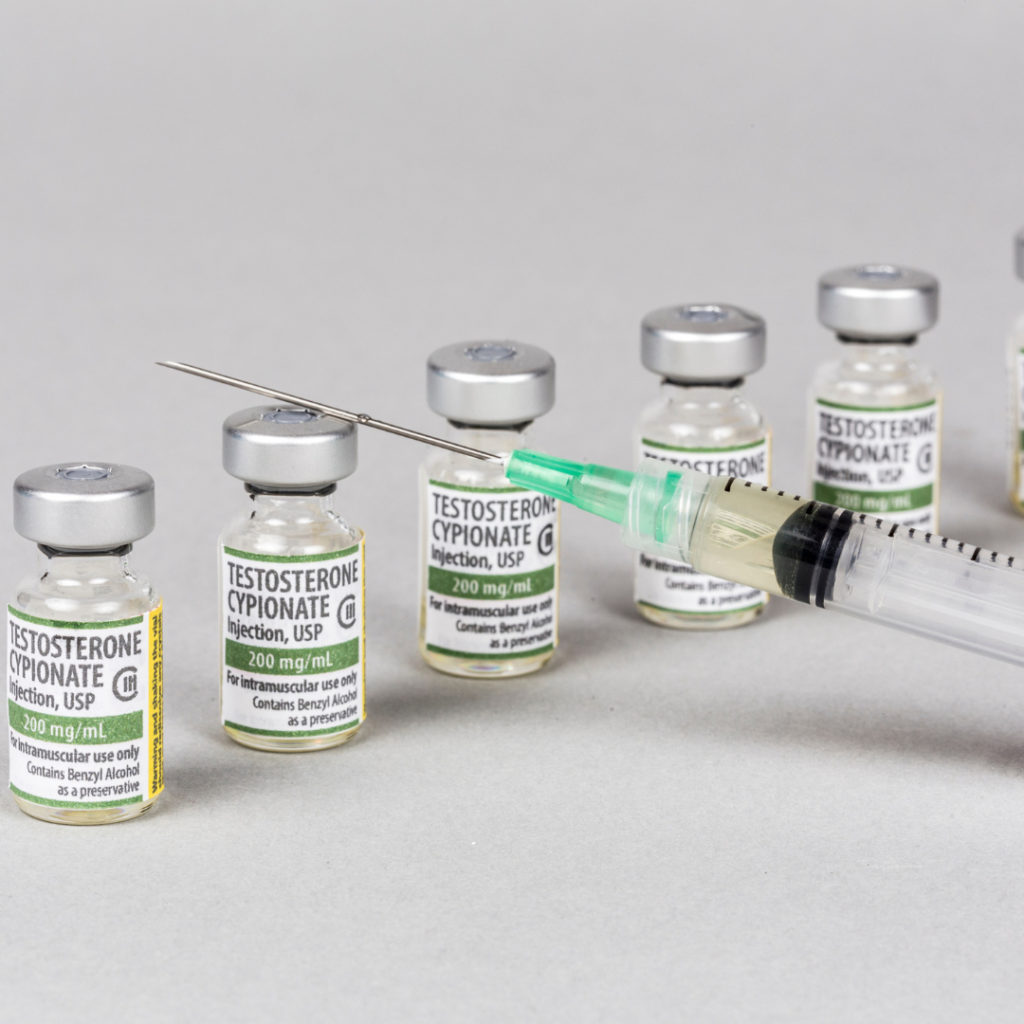STRENGTH SENSEI SWIS SEMINAR REVIEW
Challenging the Myth of Testosterone Replacement Therapy
The truth and consequences of managing testosterone levels
Testosterone Replacement Therapy (TFT) is a multi-billion dollar business. No longer does an individual have to hook up with the local dealer in the locker room. Just go to a doctor, preferably one who specializes in this drug, and get your pills or patches. Oh, and best of all – medical insurance will often foot the bill!
Along with the drug option, the supplement business has been flooded with products promising to boost the male hormone. Championed by sports celebrities, doctors, and bodybuilders, promote these products that promise a fountain of youth, increased lability, more energy, less fat, and more muscle.
One individual who can separate the facts from the fallacies of TRT is Dr. Michael J. Miletic, MD, FAAFRM, And he did just that at the 2018 SWIS Convention in Canada with his presentation, “Challenging the Myth of Testosterone Replacement Therapy.”

Miletic represented Canada in the Olympic Games in weightlifting, so knows first-hand how important testosterone is to athletic performance. Academically, his accomplishments are numerous. He’s a medical doctor, psychiatrist, and neurologist, and has extensive studies in the fields of mental and physical performance, functional medicine, anti-aging, regenerative medicine, merged mind and body medical practices, and neuro high-performance meditation.

Miletic divided his presentation into the following four parts:
- Symptom and Health Implications of Low Testosterone
- Implications of Supplementing Testosterone
- Approaching the Patient as a Whole
- Implications of Testosterone on the Brain/Interactions with Neuropeptides
The Case for TRT
There should be no question that testosterone can add muscle and reduce bodyfat as testosterone is one of the most common doping violations among strength and power athletes. Here are eight more:
- Prevents cardiovascular disease
- Decreases chronic inflammation
- Ensures bone integrity
- Helps protect against depression
- Improves mood
- Improves memory, both visual and verbally, and spatial processing
- Promotes clearer thinking by eliminating brain fog
- Hep you live longer
Contrast that with the horror stories that testosterone can cause “’roid rage” that leads to physical alternations, including domestic violence. Oh, and then there is the risk of heart attacks and the fear that once you take TRT, you are addicted for life.
Miletic began by pointing out flaws in early studies in testosterone replacement therapy, such as one study published in the Journal of the American Medical Association. In this study, which Miletic says was extremely flawed, the research claimed that TRT had limited benefits and that at the end of six months the placebo group had higher total testosterone levels than the group giving TRT.
Next, Miletic stressed that TRT is a complex subject that many doctors do not adequately understand. There is much more involved than just giving a pill or patch and coming back in a few months to see how you’re going. He says that are least 14 other functions are affected by testosterone and these must be “measured and taken into account.” He also noted that women often needed to have healthy testosterone levels.
Miletic discussed a disturbing trend: It’s not just older men who suffer from low testosterone, but more and more young men, even teenagers, who need treatment. In his seminars and writings, Charles R. Poliquin often discussed this issue, noting that he and his colleagues often see that there seem to be a lot of “wimpy” young teenagers and adolescents. And, in contrast, the excessive estrogen compounds in the environment are causing young women to physically mature at a faster rate.

The Brain/Body Connection
Beyond the physical benefits, Meletic spent a considerable amount of time discussing how testosterone affects mental health. He explains that testosterone is necessary for the brain to function optimally.
Using professionally-produced slides with credible references, Miletic showed the relationship between testosterone levels and Alzheimer’s. Because of the relationship between testosterone levels and insulin resistance, some researchers are referring to Alzheimer’s as Type 3 Diabetes.
In addition to TRT, Miletic says it’s important to consider additional methods to restore normal testosterone levels. Weight training, for example, may raise testosterone levels by 10 percent. However, he says that depending on an individual’s previous lifestyle, addressing diet, stress, dealing with environmental toxins, and improving sleep habits could produce much higher improvement levels.
Rather than answering questions at the end of his presentation, Miletic fielded many fascinating questions from audience members throughout. For example, in answering a question about environmental toxins, Miletic explained the link between the compounds found in plastic water bottles and the increased rate of autism.Miletic believes that we need to get away from treating the sick but take a proactive approach to health care. He also believes that we need to take a holistic approach to patient care, and testosterone replacement therapy may play an important role in helping us live longer and better! (TSS)
[Dr. Michael J. Miletic’s 80-minute presentation at 2018 SWIS, “Challenging the Myth of Testosterone Replacement Therapy,” is available at https://www.swisvideoflix.com]
